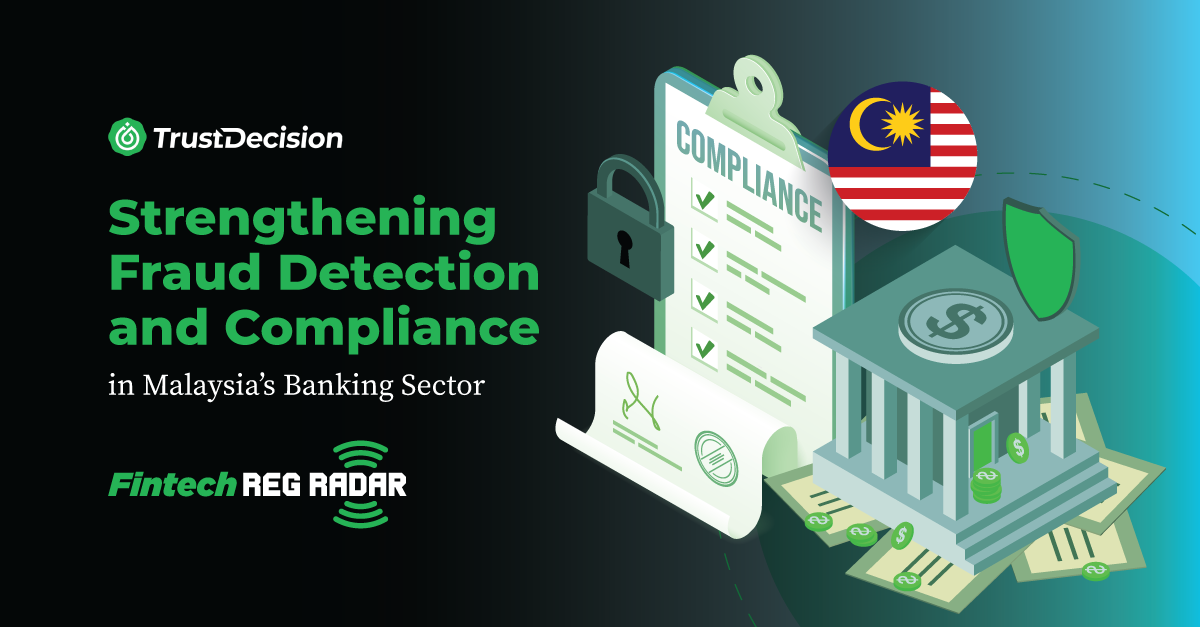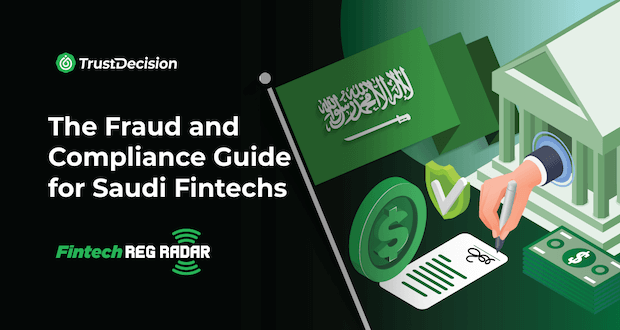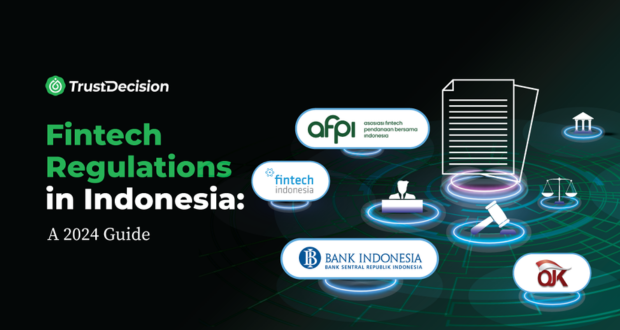Malaysia’s banking sector operates within a stringent regulatory framework shaped by global anti-money laundering (AML), counter-financing of terrorism (CFT), and fraud prevention initiatives. As digital banking grows, so does the need for robust, real-time fraud detection systems. Central to these efforts is Bank Negara Malaysia (BNM), whose policies, along with other governmental frameworks, ensure that financial institutions comply with both local and international standards.
Key initiatives like the National Scam Response Centre (NSRC) and policies such as Risk Management in Technology (RMiT) and Circulars on Managing Electronic Banking Risks demonstrate the country’s commitment to bolstering fraud detection and regulatory compliance.
Key Regulations Shaping the Regulatory Landscape
Understanding the Malaysian regulatory landscape is essential for businesses that provide fraud detection and compliance solutions. Several regulations form the backbone of fraud prevention and risk management in the Malaysian banking sector:
- Risk Management in Technology (RMiT) Policy Document (2020): This framework outlines the expectations for all financial institutions to manage technological risks with a enterprise risk management framework (ERM), including the requirements of incorporating real-time fraud detection and reporting systems, continuous transaction monitors, automated tools for batch data analysis, end-to-end backup storage management, robust data cryptography, enterprise-wide cybersecurity measures against cyber attacks, and more.
- Circular on Managing Risks of Electronic Banking (2014): This document focuses on the responsibilities of financial institutions to safeguard electronic transactions from unauthorized activities, calling for enhanced security measures and continuous assessment of digital banking risks.
- Guidance on Financial Institutions’ Response to Fraud (2021): This guideline provides detailed instructions on how institutions should detect, investigate, and report fraudulent activities, emphasizing the importance of a swift response to prevent financial loss.
- Fair Treatment of Vulnerable Consumers (Exposure Draft 2023): While primarily focused on consumer protection, this document indirectly impacts fraud detection by advocating for more stringent measures when dealing with vulnerable customers such as the elderly or those with limited digital literacy.
- Anti-Money Laundering and Counter-Financing of Terrorism (AML/CFT) Compliance: These regulations require financial institutions to implement rigorous measures to prevent money laundering and terrorist financing. Fraud detection systems must integrate transaction monitoring that can detect suspicious patterns in line with AML/CFT standards.
These regulations collectively shape the environment in which fintech companies must operate, ensuring that compliance, security, and customer protection are prioritized.
Current Status of Fraud Detection Systems in Malaysia
Many Malaysian banks continue to operate separate fraud detection and transaction monitoring systems across their various digital and conventional banking channels. This fragmented approach often results in operational inefficiencies, preventing institutions from maintaining a comprehensive view of customer activities and fraud risks. This disconnect, especially between digital and offline channels, limits the capacity for real-time, integrated fraud detection.
BNM’s guidelines, particularly the 2022 specifications on electronic banking fraud, mandate the consolidation of fraud detection systems, urging financial institutions to establish holistic, integrated solutions. However, many banks are still transitioning from legacy systems to more modern, AI-driven fraud detection platforms.
Additionally, the NSRC has become a pivotal player in Malaysia’s fight against financial fraud. Established as a joint initiative between BNM, the National Anti-Financial Crime Centre (NFCC), and other key agencies, the NSRC enables rapid response to online financial scams. With a hotline operating from 8 AM to 8 PM daily, the NSRC coordinates with banks to intercept stolen funds and mitigate losses for victims.
Key Challenges and Regulatory Insights
Challenge 1: Fragmentation of Fraud Detection Systems
One of the primary challenges facing the financial sector in Malaysia is the fragmentation of fraud detection systems across various banking channels. Banks frequently rely on multiple vendors and solutions, creating silos that hinder real-time monitoring and data consolidation. This disjointed approach makes it difficult to identify fraud trends across different channels and respond promptly.
Regulatory Response: The RMiT guidelines and 2022 electronic banking fraud specifications directly address this challenge by emphasizing the integration of fraud detection systems across all banking channels. These regulations encourage banks to unify their systems, allowing for the consolidation of customer data, transaction history, and risk profiles into a single platform. TrustDecision’s solutions offer an integrated platform that enables real-time detection across both digital and offline channels, ensuring compliance with these regulatory mandates.
Challenge 2: Insufficient Coverage Across Banking Channels
While significant attention has been given to fraud detection in digital transactions, traditional offline channels often remain under-monitored. The Circular on Managing Risks of Electronic Banking highlights that this gap creates vulnerabilities in traditional banking channels, such as over-the-counter transactions or ATMs, that fraudsters can exploit.
Regulatory Response: BNM mandates, particularly through the Circular on Managing Risks, call for an expansion of fraud detection coverage across all banking channels. Financial institutions are required to implement consistent monitoring and security measures, regardless of whether a transaction occurs online or offline. TrustDecision’s fraud detection solutions provide banks with comprehensive coverage, ensuring transactions are equally protected by advanced analytics and real-time monitoring.
Challenge 3: Delayed Fraud Detection and Response
The 2022 electronic banking fraud guidelines stress the need for real-time fraud detection and response. However, many financial institutions struggle to achieve this due to the lack of integration and outdated systems. The longer the delay in detecting fraudulent transactions, the higher the likelihood of financial loss and reputational damage.
Regulatory Response: BNM’s RMiT and AML/CFT regulations strongly advocate for the use of AI and machine learning to enhance the speed and accuracy of fraud detection. These technologies allow banks to analyze vast amounts of data in real time, identifying suspicious patterns before fraud can be committed. TrustDecision’s solutions leverage these advanced technologies to meet regulatory expectations, delivering real-time decision-making and enabling prompt intervention in suspected fraud cases.
Current and Future Outlook
A major regulatory shift is pushing banks toward the integration of fraud detection and transaction monitoring systems. BNM’s Risk Management in Technology (RMiT) guidelines emphasize the use of advanced technologies such as AI and machine learning to improve real-time monitoring. In line with this, the NSRC has emerged as a key development in fraud prevention. The center, which operates through the emergency hotline 997, coordinates with banks to block suspicious transactions, recover funds, and enhance overall fraud detection.
The National Fraud Portal, which has rolled out in August 2024, will further streamline scam reporting and information sharing between financial institutions. This initiative, along with the expanding role of the NSRC, underscores Malaysia's proactive stance in combating fraud across all channels.
The future of Malaysia’s banking sector lies in unified compliance platforms that integrate fraud detection, AML, and CFT compliance within a single framework - the continued development of the NSRC and initiatives like the National Fraud Portal will strengthen Malaysia’s defenses against financial crime. Such systems will rely on advanced technologies, not only to detect fraud but also to predict fraudulent behaviors before they occur. Financial institutions are increasingly moving toward real-time, cross-channel fraud detection systems that address both digital and conventional banking vulnerabilities.
At TrustDecision, we recognize the importance of staying ahead of regulatory requirements. Our solution integrates seamlessly with existing banking infrastructures, providing advanced fraud detection and real-time monitoring in full compliance with BNM’s regulations. As the sector moves toward unified compliance systems, TrustDecision is positioned to help financial institutions navigate this evolving landscape, ensuring both regulatory adherence and operational efficiency.
References
1. Risk Management in Technology (RMiT) Policy Document (2020)
https://www.bnm.gov.my/documents/20124/963937/Risk+Management+in+Technology+(RMiT).pdf
2. Circular on Managing Risks of Electronic Banking (2014)
3. Fair Treatment of Vulnerable Consumers (Exposure Draft 2023)
https://www.bnm.gov.my/documents/20124/938039/28230228_ED_Fair_Treatment_of_Vulnerable_Consumers.pdf
4. Anti-Money Laundering and Counter-Financing of Terrorism (AML/CFT) Compliance
5. https://www.bnm.gov.my/-/nfp-launch













